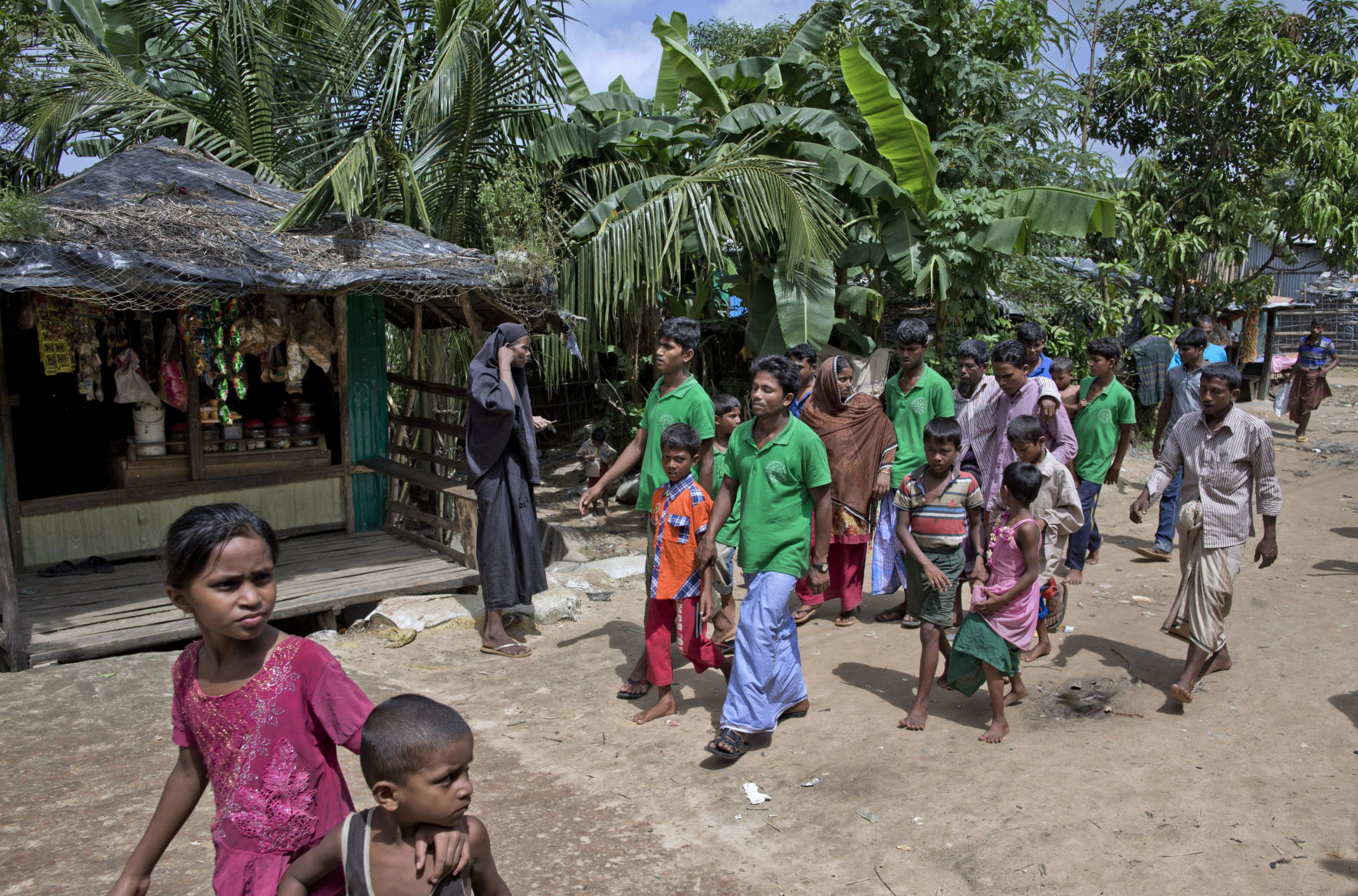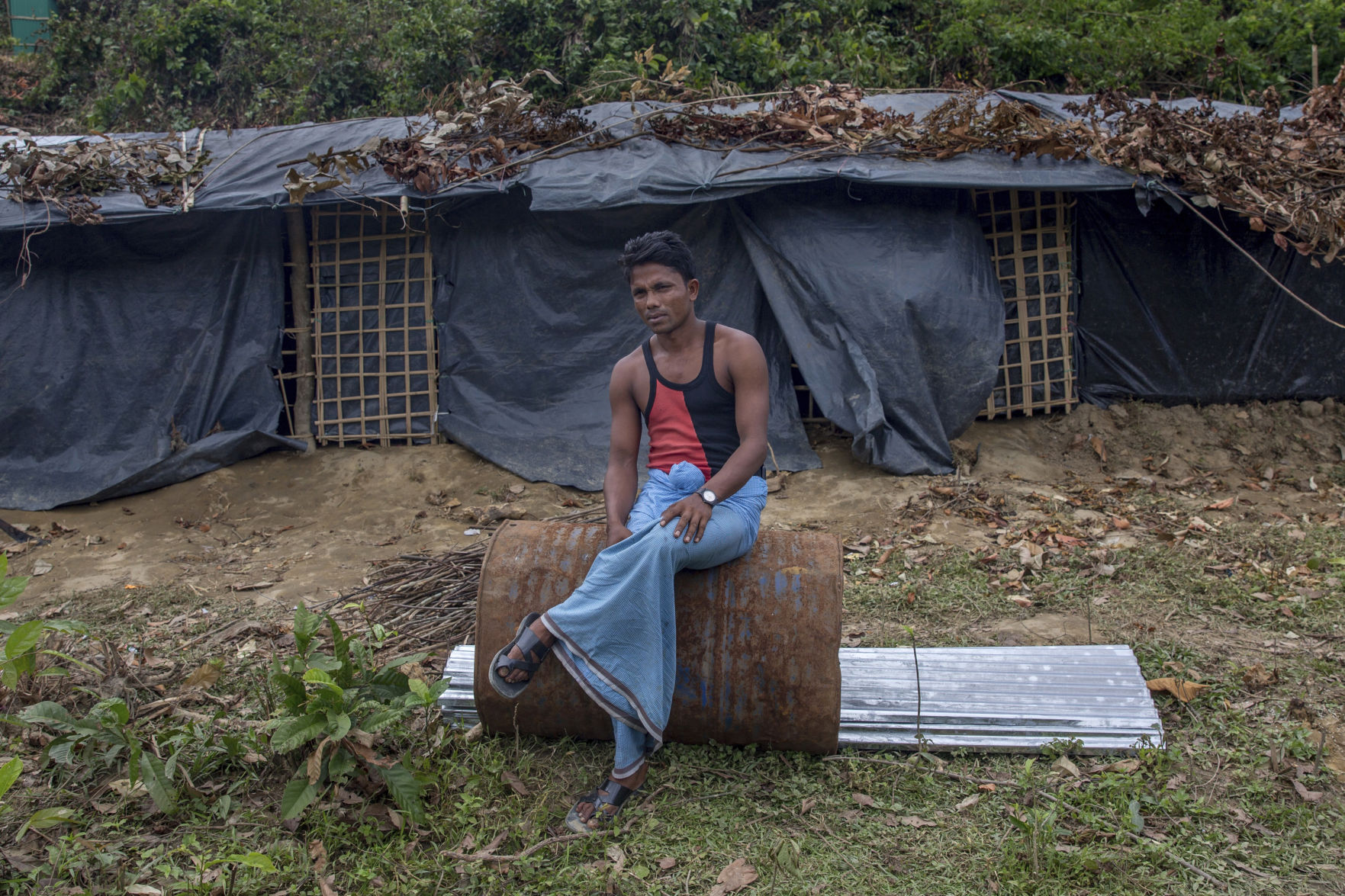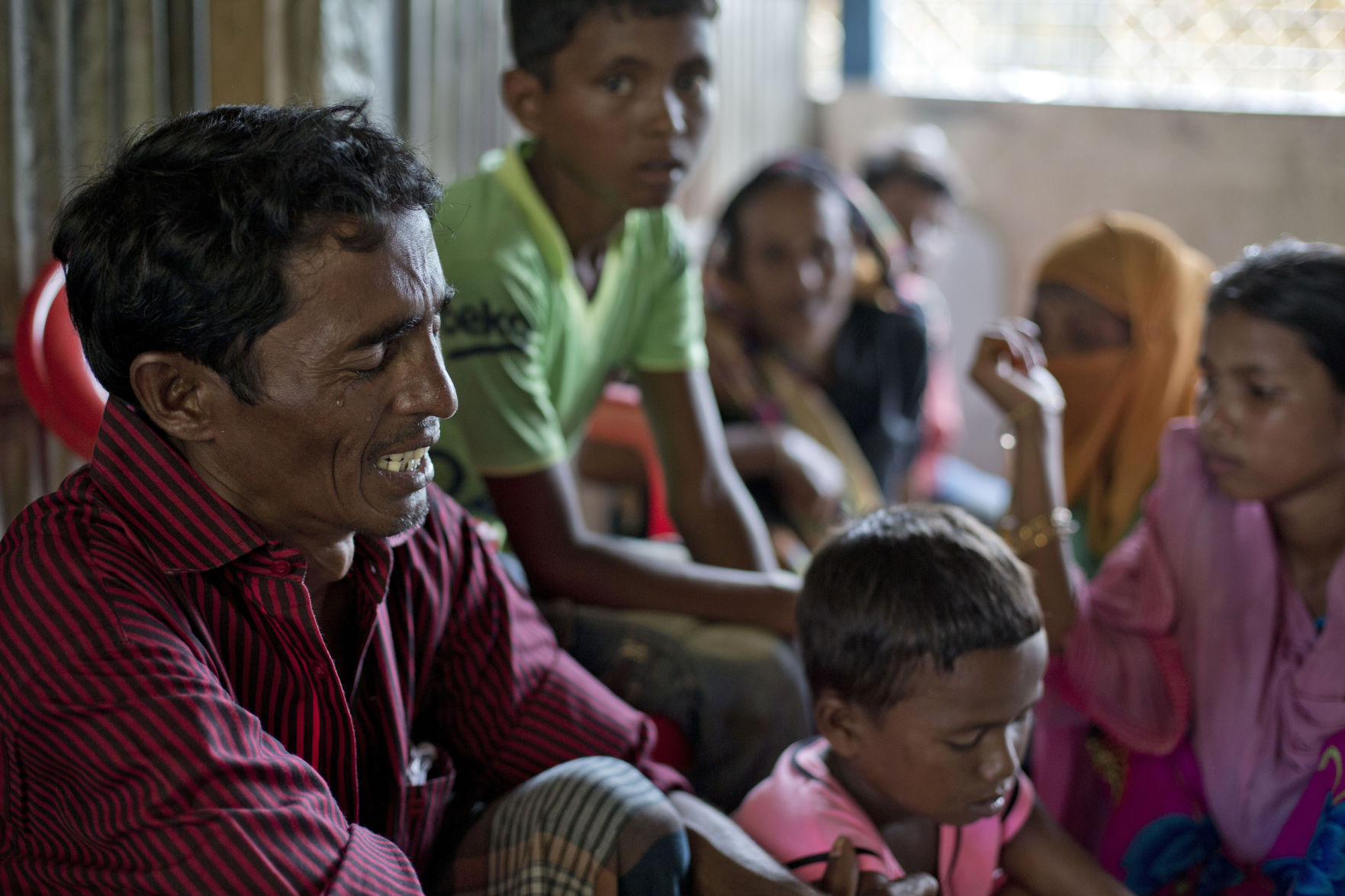UNITED NATIONS (AP) — Britain has circulated a draft U.N. resolution that would condemn violence that has sent more than 600,000 Rohingya Muslims fleeing from Myanmar to Bangladesh and call on Myanmar’s government to immediately halt military operations in Rakhine
UNITED NATIONS (AP) — Britain has circulated a draft U.N. resolution that would condemn violence that has sent more than 600,000 Rohingya Muslims fleeing from Myanmar to Bangladesh and call on Myanmar’s government to immediately halt military operations in Rakhine state.
If adopted by the Security Council, the resolution would be the first in many years on Myanmar. But diplomats say it faces opposition from China, a neighbor and ally of the country formerly known as Burma which is shifting from decades of military rule toward democracy.
The draft, which was sent to members of the Security Council and obtained Wednesday by The Associated Press, also condemns the attacks by Rohingya rebels on Aug. 25 that sparked the violence.
But its focus is on the plight of the Rohingyas in Myanmar and in Bangladesh, which has been praised for its humanitarian response.
The proposed resolution expresses grave concern at accounts that Myanmar security forces and vigilantes have used disproportionate force, systematic destruction of property and sexual violence against the Rohingya community in Rakhine.
The Rohingya face official and social discrimination in Buddhist-majority Myanmar. The government doesn’t recognize Rohingya as an ethnic group, instead insisting they are Bengali migrants from Bangladesh living illegally in the country, and it has denied them citizenship.
The latest violence began with a series of attacks Aug. 25 by Rohingya insurgents. Myanmar security forces responded with a scorched-earth campaign against Rohingya villages in northern Rakhine that the United Nations and human rights groups have criticized as disproportionate and a campaign of ethnic cleansing.
The draft resolution calls on Myanmar’s government to address the root causes of the crisis by respecting human rights, “without discrimination and regardless of ethnicity or religious affiliation, including by allowing freedom of movement, equal access to basic services and equal access to full citizenship for individuals belonging to the Rohingya community.”
The U.N. independent investigator on human rights in Myanmar, Yanghee Lee, told the General Assembly’s human rights committee Wednesday afternoon that while Myanmar’s military controls national security and law and order, “there is much that can be done by the civilian government,” which is led by Nobel Peace laureate Aung San Suu Kyi.
Lee said this should start with “public messaging that embraces the entire makeup of the Myanmar population.” The government should use its majority in parliament to strike down laws that discriminate “to show that all groups in Myanmar have equal rights,” she said.
The draft resolution welcomes Myanmar’s “public commitment that it will accept the return of all displaced people and refugees” and calls on its government to work will Bangladesh and the U.N. to “expedite” the voluntary and safe return of all refugees to their homes in Myanmar.
But Lee said she is concerned that “only a fraction” of the refugees in Bangladesh will be allowed back.
“The Rohingya population in Cox’s Bazar — who have had their food supply blocked and been starving, been shot at while fleeing, walked for weeks to reach safety, lost family members on the way to refuge, and are now living in plastic sheets — should not be made to meet with stringent requirements if they so wish to return to Myanmar,” she said.
Lee also said it is “unreasonable and unacceptable” that the government is insisting that the U.N. refugee agency and the International Organization of Migration be excluded from discussions on repatriating the Rohingya.
The proposed resolution expresses deep concern at the severely limited humanitarian access to Rakhine. It calls on Myanmar’s government “to grant immediate, safe and unhindered access to U.N. agencies,” their partners and other aid groups.
It urges the government to grant “unfettered access” to the U.N. Human Rights Council’s fact-finding mission. And it calls for “swift and transparent investigations into allegations of human rights abuses and violations.”
The draft welcomes the government’s commitment to implement recommendations of a commission chaired by former U.N. Secretary-General Kofi Annan calling for economic development and social justice to counter the deadly violence. It urges all parts of the government to implement the recommendations “swiftly and in full.”




